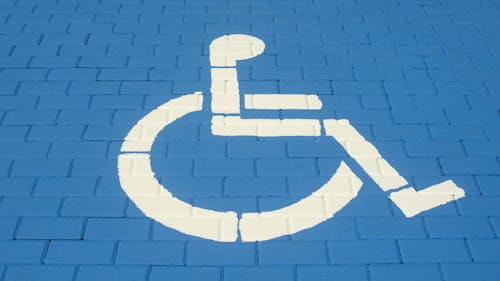Rutgers proposes new interdepartmental minor in disability studies

Rutgers has recently proposed a new minor in disability studies, which will focus on research and education surrounding people with disabilities, said Jeff Friedman, an associate professor in the Department of Dance, who worked to develop the minor.
He said the minor is a culmination of effort between multiple University departments, including kinesiology and health, labor studies and employment relations and dance studies. Over the past five years, faculty and staff from a variety of disciplines have come together to form a working group and design the minor.
Javier Robles, a professor in the Department of Kinesiology and Health and an advocate for disability rights in New Jersey, said he has been pushing for a disability studies academic curriculum at Rutgers for years.
Douglas Kruse and Lisa Schur, both professors in the Department of Labor Studies and Employment Relations and co-directors of the Rutgers Program for Disability Research, support the creation of the minor as well.
They said there has been a national pattern of increased availability of disability studies majors, minors and graduate studies, with at least two minors in disability studies being offered in New Jersey. Rutgers currently does not have any disability studies academic tracks, only offering independent courses.
“Rutgers needs to step up to the plate to not only recognize disability studies as an important interdisciplinary study area, but also to understand that disabled populations deserve to be recognized and be well-served by Rutgers,” Friedman said.
He said the proposed minor consists of seven, three-credit courses including four required courses: Introduction to Disability Studies, Research Methods for Disability Studies, Fieldwork: Disability Studies and Capstone: Disability Studies. To fulfill their elective requirements, students can choose from more than 40 existing courses featuring disability studies content.
The minor’s working group is waiting to finalize the four required courses and address any academic infrastructure concerns before submitting the full curriculum to the Undergraduate Education Council, Schur said.
While students were able to enroll in the Introduction to Disability Studies course for the first time this semester, she said she hopes the minor as a whole will be available to students by the 2023 academic year.
Kruse and Schur said the disability studies minor will be beneficial for the Rutgers community, including those with and without disabilities. They said they believe students with disabilities will feel more included at the University and gain a greater understanding of their rights, while students without disabilities will learn how to work with a diversity of abilities in society.
“I hope that students, both temporarily abled and disabled, move beyond any feelings of not belonging and not being included, to being fully included and belonging at this institution of higher learning,” Friedman said.
He said the University will benefit from expanding representation of people with disabilities in their curriculum, increasing inclusion and gaining new knowledge. The minor will also promote community engagement and allow for students to collaborate with individuals with disabilities outside of Rutgers.
Friedman said the minor will foster initiatives similar to those provided by the Department of Dance Studies’ Integrated Dance Collaboratory, which is a dance class for neurodivergent students and community-based adults with autism, in partnership with the Rutgers Center for Adult Autism Services.
Additionally, the minor will facilitate stronger ties between Rutgers and disability-focused organizations as well as promote disability studies scholarship among students through work with faculty, Kruse and Schur said.
Going forward, Friedman said the working group hopes that the disability studies minor grows to become a major academic track. Robles said he hopes the minor advances the creation of other programs for people with disabilities such as a new Center for Disability, Sports, Health and Wellness.
“We hope to begin to create a critical mass of students at Rutgers with a wide range of academic and personal interests to create a ‘beloved community’ that values equity for people with a variety of disabilities,” Kruse, Schur and Friedman said. “Once that critical mass is present, who knows where we may be able to go?”



